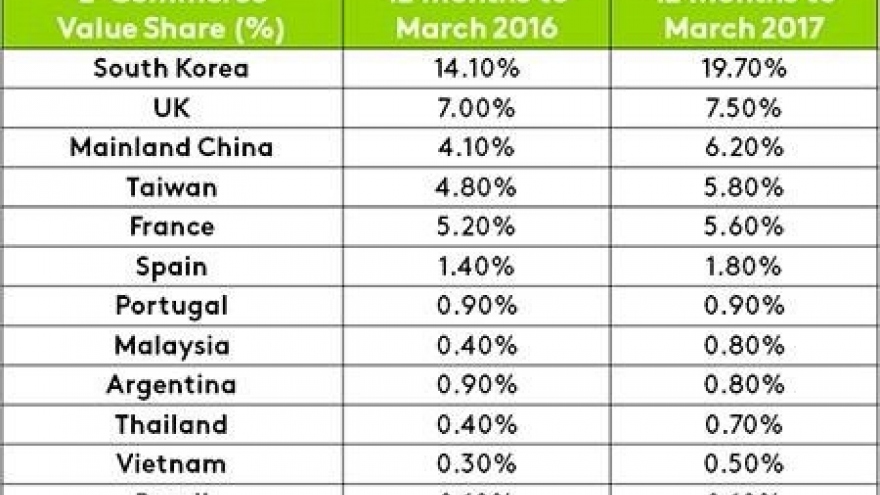Cross-border e-commerce benefits Vietnamese SMEs
Vietnamese small-and medium-sized enterprises (SMEs) are focusing more and more on international trade via e-commerce.
Vietnam is one of the countries that has experienced the fastest growth of e-commerce, at 35% annually, 2.5 times higher than Japan.
The bloom of e-commerce has aided the development of cross-border e-commerce since up to 33% of online customers have purchased products from abroad.
 |
| Vietnamese small-and medium-sized enterprises are focusing more and more on international trade via e-commerce (Source: tuoi tre.vn) |
Dat Phan, Director of Fado.vn, a cross-border e-commerce platform in Vietnam, attributed the development of cross-border e-commerce in the country to increasing consumption demand of Vietnamese people and SMEs’ efforts to reach foreign markets.
Lai Viet Anh, deputy head of the Department of E-commerce and Digital Economy, noted that financial resources have been used to help enterprises improve their capacity for e-commerce.
Up to 70% of 800 export businesses surveyed by the department are SMEs and the remainder are big enterprises.
The survey also revealed that 54% of the big enterprises use websites and e-transactions while this number among SMEs stands at 36%.
Only 11% of the businesses have joined foreign e-commerce platforms.
However, 42% of the enterprises reported that the total value of their online orders makes up half of their accumulated export turnover.
Tran Thanh Hai, deputy head of the Export-Import Department under the MoIT said cross-border e-commerce is huge globally and Vietnamese businesses should grasp opportunities generated in this area.
The Vietnam E-commerce Association suggested retail businesses conduct cross-border e-commerce via major platforms like Amazon and Alibaba, aiming to participate in the global value chain.
Hai described e-commerce as a solution to improve competitiveness of businesses, asking them to take the initiative to join the process.
To promote cross-border e-commerce, the MoIT has applied various solutions to support export activities.
Apart from developing favourable policies for e-commerce, the ministry will focus on administrative reform and create the best conditions for enterprises to participate in international exhibitions, fairs and forums.
The Department of E-commerce and Digital Economy has also launched an e-commerce portal to support Vietnamese exporters.
Total cross-border online transaction value is expected to hit US$900 billion globally by 2020, making up 22% of global e-commerce value.



